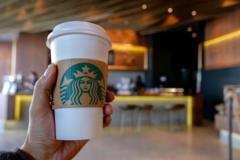Amid heightened political tensions, Starbucks has temporarily disabled the use of presidential candidates' names in their app, emphasizing the importance of neutrality as South Korea approaches its presidential election.
Starbucks Takes a Stand: Bans Names of Presidential Candidates in South Korea

Starbucks Takes a Stand: Bans Names of Presidential Candidates in South Korea
Starbucks emphasizes political neutrality by blocking names of six presidential candidates in South Korea during election season.
This election season has seen Starbucks take a unique approach to maintaining political neutrality in South Korea. In an unexpected move, the coffee giant has banned the usage of names belonging to all six candidates in the running for the presidency. This decision arose after some customers began to order drinks using political phrases and the names of the candidates, leading baristas to vocalize these politically charged names.
Starbucks stated that this measure aims to ensure a pleasant experience for all customers, suggesting that the names of political candidates could send unintended messages or provoke uncomfortable situations. The ban will remain in effect until after the country's elections on June 3. Alongside major controversies stemming from former president Yoon Suk Yeol's impeachment, the political climate has prompted businesses and public figures in South Korea to patiently navigate the murky waters of political expression and opinion.
Jang Hye-mi, a 33-year-old customer, believes the reaction to the ban is overly sensitive, questioning the implications for individuals whose names might coincide with candidates. Meanwhile, Ji Seok-bin, a regular at the store, felt that while the rule seemed trivial, he understood it in light of the increasing political divide ignited by impeachment drama.
Starbucks is not the only entity treading carefully; South Korea's leading search engine Naver has blocked autocomplete suggestions for political candidates as a means of ensuring fair information dissemination during the campaigning period. Political references continue to complicate the search landscape, with inquiries revealing the sensitive nature of the candidates’ circumstances and public perception.
South Korean celebrities, too, find themselves engaging in political caution. The scrutiny surrounding their attire and even their choice of colors has intensified during elections, with even subtle color choices capable of sparking backlash or accusations of bias. A Korean makeup artist explained that during elections, styling teams often lean towards neutral colors to evade political implications.
In light of increasing ideological divides, many find it easier to abstain from political discourse altogether. According to Dr. Cho Jin-man from Duksung Women's University, it is vital for society to facilitate discussions on various perspectives, yet many prefer silence to maintain peace during this politically charged time. As South Korea barrels towards a momentous election, the ramifications of political neutrality resonate widely, influencing everything from app functionalities to celebrity styling choices.


















